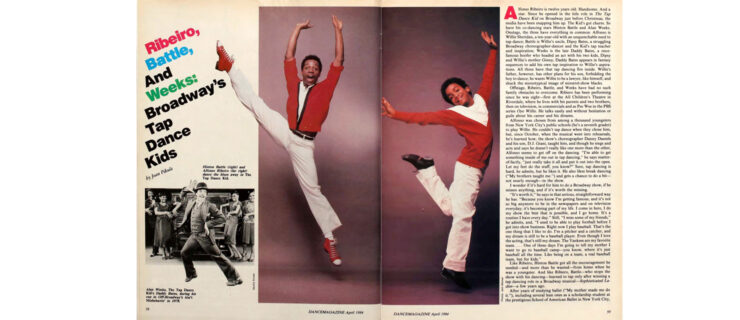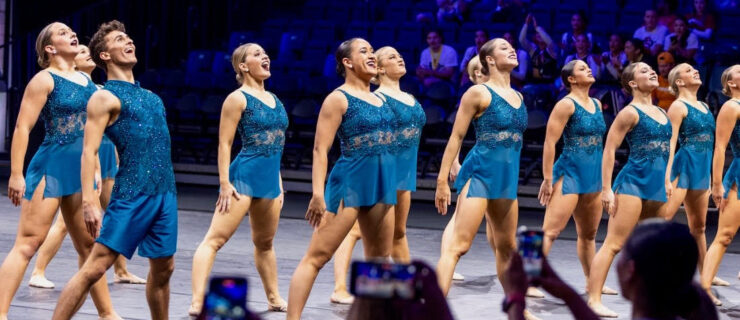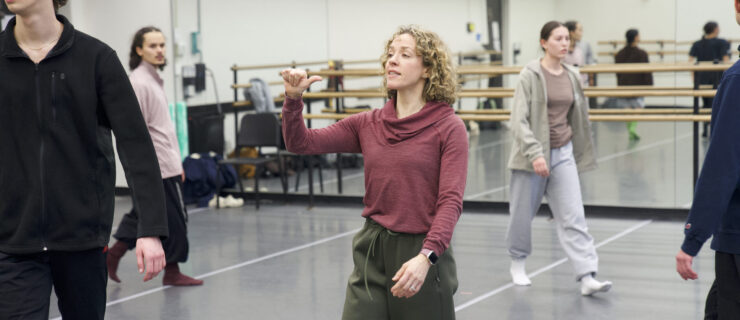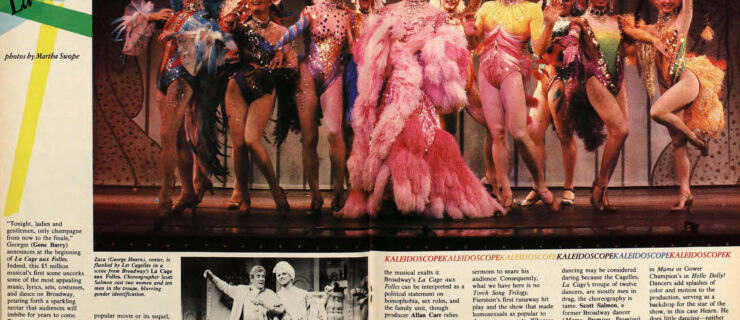On Broadway: Punk in Motion
It was “a tall order,” says American Idiot’s director Michael Mayer. When the time came to find a choreographer for the musical he was concocting from Green Day’s spectacularly successful, Grammy-winning album of the same name, he felt he needed “something completely new.”
Mayer, whose last Broadway musical, Spring Awakening, won him the best director Tony, was picturing a through-sung show whose cast would be constantly in motion. “It would be very heavily choreographed. I wanted it to look visceral, and organic to the root of Green Day’s punk past. So I wanted someone who had access to a very masculine energy, who knew how to communicate a complicated emotional life through a kind of violent and beautiful rage. But I didn’t want steps. And I didn’t want it to feel like it came from any particular school of modern dance, either.”
His answer was Steven Hoggett, co-founder (with Scott Graham) of the edgy British physical theater troupe Frantic Assembly and winner of last year’s Olivier Award—London’s Tony—for his choreography of Black Watch. (The Scottish National Theatre’s fantasia about Scottish soldiers fighting in Iraq played to great acclaim in Brooklyn at St. Ann’s Warehouse.) The “ballistic” style of theater practiced by Hoggett and his many European counterparts is barely known in the United States, but American fans of Pina Bausch or Bill T. Jones would feel right at home with Frantic Assembly’s characteristic mix of text, music, and stylized movement.
Hoggett was a Swansea University literature student with no drama or dance background when he was taken, in the early ’90s, to Medea: SexWar, a gut-crunching adaptation of the Greek play by a Welsh theater company, Volcano. “They hurled themselves around the stage in a way that I found frightening,” he says. “It was incredibly violent and abrasive, with a very loud soundtrack. I never knew theater could be like that.”
Frantic, as he calls it, began in 1994, inspired by Volcano, DV8, the Cholmondeleys and other British groups exploring the possibilities of physical theater. As Frantic’s work became better known, Hoggett began collaborating on other projects, like Black Watch. When Mayer saw Black Watch, he was blown away, and he felt the same after he and Hoggett met. “I literally didn’t talk to anyone else,” Mayer says. “I looked no further.”
For his part, Hoggett was intrigued by the American Idiot idea. “I love pop music,” he says, “and a show in the format of three-minute songs felt very exciting structurally and dynamically. ‘American Idiot’ is a seminal album in the U.K. as well as in the States. There was this massive responsibility in staging the show to deliver a huge message in a really original way. And I liked the idea of trying to choreograph Green Day music. When you go to their concerts and when you look at their music videos, they have never had anything choreographed in their entire lives. You can’t do Britney Spears on a Green Day song.”
Hoggett, 38, tackled the production, which opens this month on Broadway after a successful run at the Berkeley Repertory Theatre, the same way he works at Frantic Assembly. “I don’t stand in the front and ask people to copy me,” he says. “That would create a certain type of work, but it means that all my shows would look the same. The key to the success of anything like this is the cast that I’m working with. I ask a lot of them physically, I ask a lot of them emotionally, I ask a lot of them intellectually. And I ask a lot of them theatrically, as performers.”
Starting at the workshop stage, he did exercises with the performers on scenarios suggested by the songs on the album, editing and shaping their responses. “We were just trying things out and putting things into unison.” One of the biggest challenges, he says, was determining “how far unison can go and still look like it’s got an element of raw edge to it. I wanted it to look like 19 individuals moving at the same time rather than 19 dancers. It’s a really, really fine line.”
He was awed by his first experience with American performers, he says. “At Frantic it’s always an absolute nightmare to audition actors, because we demand an ability to act and perform text and to create physical movement as well. People talk about the triple threat. In America, it exists.”
Sylviane Gold writes on theater for
The New York Times.
Photo by mellopix.com




